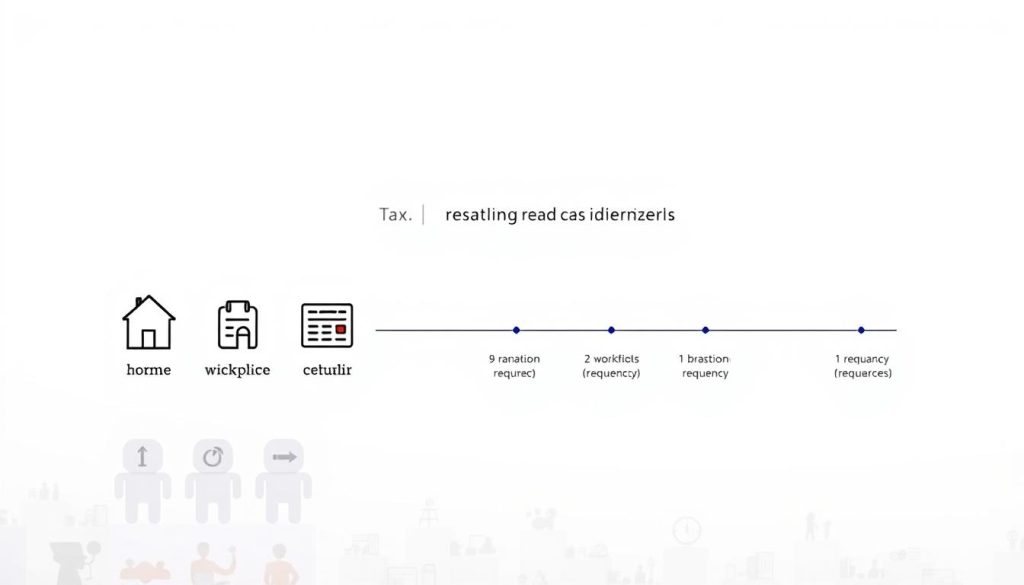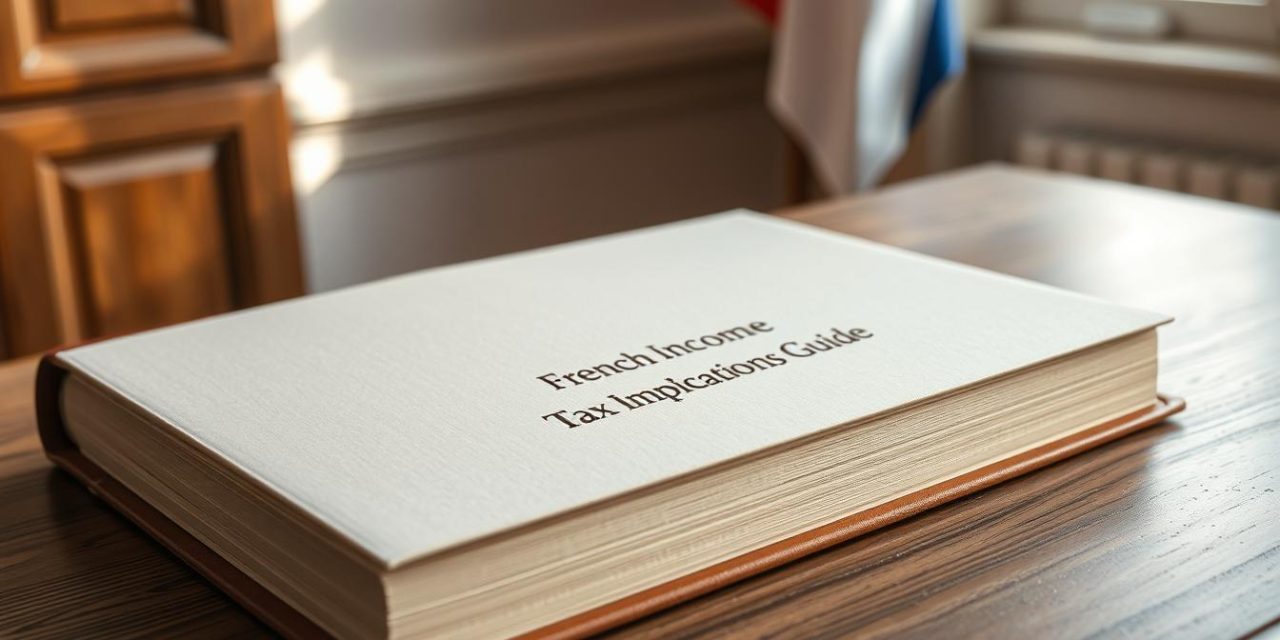Navigating the financial system in France requires a clear understanding of your obligations. This is especially true for individuals living and working in the country. Knowing how the system works is the first step toward proper compliance.
France’s approach is based primarily on your residence status. The law distinguishes between residents and non-residents. Residents are generally liable on their worldwide earnings, subject to treaty exemptions. Non-residents are only liable on their French-source earnings.
For residents, filing an annual declaration is a standard requirement. This is typically done in the year following the period being reported. The French tax administration then calculates the final amount and issues bills, usually in the late summer.
This guide will walk you through the fundamental structure. We will cover residency criteria, categories of taxable earnings, and important filing procedures. Staying informed helps you manage your responsibilities effectively throughout the fiscal cycle.
Table of Contents
Key Takeaways
- France’s system is based on whether you are a resident or non-resident for tax purposes.
- Tax residents must declare their worldwide earnings, with some treaty protections.
- Non-residents are only taxed on the money they earn from French sources.
- An annual declaration must be filed, usually in the spring following the tax year.
- The administration sends out official bills after processing your return.
- Understanding your status and obligations is crucial for compliance.
Understanding French Income Tax Basics
At its heart, the French fiscal framework for individuals operates on the concept of annual disposable revenue. This means your total available funds from all sources worldwide form the starting point for assessment.
The system first identifies your earnings by their nature. Categories include employment salary, business profits, investment returns, and rental payments. Each type may have specific rules for treatment.
Allowances and deductions are then applied to calculate your net taxable amount. This final figure is subject to progressive rates. These rates increase as your revenue rises.
France has agreements with over 125 countries to prevent double taxation. These treaties can override domestic rules for specific situations. This provides protection for your finances across borders.
Understanding these core principles is the first step. It prepares you for more detailed topics like residency and specific deductions. Knowing the basics helps you manage your responsibilities effectively.
Defining Tax Residency in France
A person’s connection to France is legally defined by four key factors for tax purposes. Your classification as a resident or non-resident sets the scope of your reporting duties. This status is reassessed each tax year.

Getting this determination right from the start is crucial. It influences all your subsequent financial obligations.
Criteria for Resident Status
You are considered a French resident if any one of these conditions applies. You have a home in the country. Your principal place of abode is in France.
Your professional activity is based there. Or, your center of economic interests is located within its borders. Nationality is not a factor in this determination.
Meeting just one of these benchmarks is enough. This classification means you report your worldwide earnings to the French authorities. Applicable treaties may provide certain protections.
Implications for Non-Residents
If you do not meet the residency criteria, your fiscal obligations are different. Your liability is limited to money earned from French sources only.
This creates a more focused reporting requirement. It is essential to review your circumstances at the start of each period.
International treaty rules can sometimes override these domestic regulations. This is important for individuals with ties to multiple countries.
Key Income Tax Implications for France Taxpayers
Calculating your annual fiscal responsibility in France involves understanding how different revenue streams interact. The system considers all earnings received during the calendar year.
Employment compensation, business profits, and investment returns all contribute to your declaration. Rental payments and various other sources must also be included.
A crucial principle allows losses from one category to offset profits from others. This strategic mechanism helps reduce your overall fiscal burden.
Unused losses can be carried forward for six years. This provides future opportunities when current utilization isn’t possible.
However, important limitations apply to these rules. Certain items like capital losses on stocks and bonds have specific restrictions.
| Income Category | Tax Treatment | Loss Offset Rules |
|---|---|---|
| Employment Salary | Progressive Rates | General Offset Allowed |
| Business Profits | Progressive Rates | General Offset Allowed |
| Investment Returns | Flat or Progressive | Category-Specific Limits |
| Rental Income | Progressive Rates | General Offset Allowed |
Different revenue streams receive varying treatment under the system. Some face progressive rates while others use flat calculations.
Proper financial planning requires careful consideration of classification and timing. Strategic use of available opportunities can optimize your position.
Navigating Taxable Income and Allowable Deductions
Your total compensation package includes more than just your base salary when filing in France. Many benefits provided by your employer must be included in your declaration.

Taxable compensation encompasses items like company car usage for private purposes. Employer-paid meals and education expenses for dependents also count toward your total.
Salary, Employment, and Business Income
Certain items remain excluded from your taxable amount. These include specific pension contributions and medical insurance premiums.
Qualifying individuals may exclude home-leave, moving, and temporary housing costs. Self-employment earnings fall into three distinct categories under French law.
Commercial activities, professional services, and agricultural work each have specific treatment. Directors’ fees receive special classification as dividend payments rather than employment compensation.
Deductions, Allowances, and Applicable Treaties
Understanding available deductions helps reduce your overall fiscal burden. Proper fiscal optimization requires knowing which expenses qualify.
International treaties can modify how employment earnings are treated. These agreements may provide exemptions for cross-border workers and expatriates.
Each category of business activity has specific deduction rules. Consulting with a professional ensures you claim all allowable reductions correctly.
Strategies for Reporting Income and Filing Returns
Successfully completing your mandatory annual submission involves understanding specific forms and deadlines. Both residents and non-residents must file their declaration in the year following the reporting period.
The French administration reviews each tax return carefully. They issue official bills in August or September. These documents show any additional payment due or refund amount.
Choosing the correct form is crucial for accurate reporting. Your residency status and revenue sources determine which document you need. Using the wrong form can delay processing.
Non-residents benefit from simplified requirements. They don’t need to declare money already subject to final withholding. This saves time and reduces paperwork.
Organize your financial information throughout the year. Keep receipts and documents in one place. This preparation makes completing your return much easier when the time comes.
Maintain proper records to support all claims. French authorities may request verification information. Good documentation ensures smooth processing of your tax return.
Managing Capital Gains and Real Estate Wealth Tax
Managing wealth through real estate and securities involves understanding two key fiscal components. The sale of assets triggers specific obligations that vary significantly.

Capital gains from selling shares, bonds, or related funds face a flat combined tax rate of 30%. This includes 12.8% for the base levy and 17.2% for social charges.
Real property sales receive different treatment. The base rate is 19%, plus the same social charges, creating a 36.2% total on your profit.
| Asset Type | Base Rate | Social Charges | Total Rate |
|---|---|---|---|
| Shares/Bonds/Funds | 12.8% | 17.2% | 30.0% |
| Real Property | 19.0% | 17.2% | 36.2% |
| Wealth Tax Minimum | 0% | N/A | 0% |
| Wealth Tax Maximum | 1.5% | N/A | 1.5% |
Holding periods provide significant relief. Gains reduce each year starting from the fifth year of ownership.
Complete exemption occurs after 22 years for the base levy. Full exemption from all charges applies after 30 years.
« Strategic timing of asset sales can optimize your financial position through the progressive reduction system. »
The real estate wealth tax applies to net assets exceeding €1,300,000 in value. Progressive rates range from 0% to 1.5% based on total value.
Proper planning helps preserve money for other goals while managing these obligations effectively.
Special Exemptions and Reduced Tax Opportunities
Certain situations and types of revenue receive preferential treatment through specific exemptions in the French system. Understanding these opportunities can lead to significant savings for qualifying individuals.
Some earnings are completely exempt from declaration. These include family allowances, health care reimbursements, and certain life insurance payments. Profits from specific securities sales also fall into this category.
One of the most valuable benefits is the principal residence exemption. Homeowners can sell their main property without paying capital gains on the profit. This represents a major advantage for property owners.
Qualifying taxpayers may access a special 50% reduction on foreign-source earnings. This applies to dividends, interest, royalties, and securities gains for five years. It provides substantial relief for those with international revenue streams.
New residents receive special consideration for real estate wealth obligations. Individuals moving to France after five years abroad avoid this levy on foreign assets. This offers a smooth transition for international relocations.
Each exemption requires meeting specific conditions and proper documentation. Strategic use of these provisions can minimize your overall fiscal burden effectively.
Detailed Guide to Social Security and Pension Contributions in France
Beyond your regular fiscal obligations, France requires mandatory social security contributions from both workers and companies. These payments fund healthcare, retirement benefits, and other social protections.

Your employer handles these deductions automatically each month. They calculate contributions based on your total earnings, including bonuses and non-cash benefits.
Social Security Withholding and Contributions
French social security rules apply to work performed within the country, regardless of where your payment originates. International agreements can modify this requirement for some workers.
For 2024, employee contributions range from 15% to 24% of gross salary. Employer contributions add another 35% to 47%. These amounts vary by retirement fund and salary level.
Social security charges operate separately from CSG/CRDS contributions. This means you face both types of deductions on your earnings.
Opt-Out and Alternative Pension Options
Recent legislation created new flexibility for retirement planning. Qualified workers can now opt out of statutory pension contributions for three-year periods.
This option is renewable for another three years under specific conditions. It allows both employee and employer to explore alternative retirement plan options.
« The opt-out provision enables customized retirement strategies that better align with individual circumstances. »
This arrangement can reduce social security costs while maintaining retirement security. Proper planning ensures your pension account continues growing through alternative means.
Understanding Tax Implications for Expatriates and Impatriates
France offers advantageous fiscal frameworks for foreign workers and returning nationals through specific expatriate and impatriate regimes. These special arrangements provide significant savings for qualifying individuals moving to the country.
The expatriate regime, established in 2004, exempts certain compensation items from French fiscal obligations. Qualifying employees seconded to France can exclude cost-of-living allowances, housing reimbursements, and equalization payments.
A key requirement mandates that individuals must not have been French fiscal residents in any of the five preceding tax years. Additional benefits include potential exclusion of up to 20% of remaining compensation for services performed outside France.
Local hires and French nationals relocating to France may benefit from the impatriate regime. This allows 30% of net remuneration to be treated as an exempt premium, subject to French reference salary limits.
Since November 2018, these benefits extend to individuals called by foreign companies and intra-company transfers. The exemptions remain available until December 31 of the eighth year following transfer, providing long-term advantages.
Proper planning ensures maximum benefit from these specialized fiscal arrangements throughout the assignment period.
Planning for Exit Tax and International Considerations
Departing France triggers specific fiscal obligations for those holding significant company shares or securities portfolios. This exit levy applies to individuals who leave on or after March 3, 2011.
The rules apply when you own more than 50% of a company’s stock or hold shares exceeding €800,000 in value. You must also have been a French resident for at least six years during the previous ten tax years.
The calculation focuses on unrealized capital gains at your departure date. This creates potential liability even without an actual sale occurring.
| Departure Date | Share Value Threshold | Required Holding Period | Tax Postponement |
|---|---|---|---|
| Before Jan 1, 2014 | Any amount | 15 years | Possible with guarantee |
| After Jan 1, 2019 | Below €2,570,000 | 2 years | Country-dependent |
| After Jan 1, 2019 | Above €2,570,000 | 5 years | Country-dependent |
Postponement options depend on your new country of residence. Some destinations require financial guarantees while others don’t.
Selling shares before the required period ends triggers immediate taxation. The gains are calculated based on values at your departure time.
Careful planning before leaving France can significantly impact your financial outcomes. Proper timing and structure help manage these complex international considerations effectively.
How to Effectively Plan Your Tax Payments and Instalments
Managing your fiscal payments requires knowledge of both withholding systems and direct instalment methods. Proper planning ensures you meet all deadlines without facing unnecessary charges.
Understanding the different collection methods helps you prepare throughout the year. This approach prevents last-minute surprises.
Withholding Tax, Instalments, and Payment Procedures
French residents have payments collected through various channels. Wages, pension benefits, and unemployment allowances use automatic withholding.
Non-French employers may use shadow payroll calculations. This determines the correct amount even when actual withholding doesn’t occur.
Other revenue streams like business profits use direct instalments. These monthly or quarterly payments come automatically from your bank account.
Always maintain sufficient funds to cover these withdrawals. Provide accurate account information to avoid processing delays.
Penalties and Late Filing Implications
Missing deadlines triggers a 10% penalty on your total liability. This applies to both late filing and late payment situations.
Additional interest charges may accumulate at 2.4% annually. Monthly rates of 0.2% can also apply for prolonged delays.
For assistance with filing requirements, contact specialists during business hours. They can answer questions about proper reporting procedures.
Proper planning helps you avoid these financial consequences. Stay organized to meet all obligations smoothly.
Conclusion
As we conclude our exploration of France’s fiscal landscape, the importance of strategic planning becomes increasingly clear. The system’s progressive tax rates and residency-based approach require careful consideration for each tax year.
Proper classification of your status determines whether worldwide earnings or only French-source income fall under local obligations. Understanding available deductions and special regimes can significantly impact your financial outcomes over the years.
France’s network of 125 international treaties provides crucial protection against double taxation. These agreements offer credits or exemptions that adjust liability based on foreign payments.
Maintaining organized records and seeking professional advice ensures optimal management of your financial account. Regular reviews help adapt to changing regulations and personal circumstances.
FAQ
Who is considered a tax resident in France?
You are generally considered a resident for tax purposes if your primary home is in France, you perform your main professional activities there, or your center of economic interests is located in the country. This status means you must declare your worldwide earnings to the French authorities.
What are the current French income tax rates?
France uses a progressive scale for its tax rates. For the 2024 tax year on 2023 earnings, the brackets range from 0% to 45%. There is also an additional contribution for high earners. The specific brackets are adjusted annually for inflation.
Are there any special tax regimes for foreigners moving to France?
A>Yes. The impatriate (impatrié) regime offers significant benefits for certain highly-skilled new arrivals. This can include a substantial exemption on earnings for up to eight years and favorable rules for taxing capital gains upon leaving the country.
What is the wealth tax in France?
The Impôt sur la Fortune Immobilière (IFI) is an annual real estate wealth tax. It applies to individuals whose net real estate assets exceed €1.3 million. Only property value is assessed, not other assets like bank accounts or securities.
When is the French income tax return due?
The filing deadline depends on your département and whether you file online or on paper. Online declarations are typically due in late May or early June. It is crucial to check the official calendar each year, as dates can change.
How do I pay my French tax bill?
Most taxpayers pay through a system of monthly or quarterly instalments. These payments are based on your previous year’s liability. You will then receive a final settlement notice, either requesting a final payment or issuing a refund after your actual return is processed.





